
Othello is a tragedy written by William Shakespeare, around 1603. The story revolves around two characters, Othello and Iago.
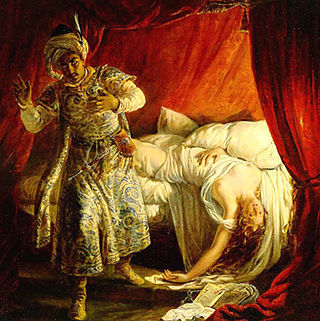
Otello is an opera in four acts by Giuseppe Verdi to an Italian libretto by Arrigo Boito, based on Shakespeare's play Othello. It was Verdi's penultimate opera, first performed at the Teatro alla Scala, Milan, on 5 February 1887.

Sir Michael John Gambon was an Irish-English actor. Gambon started his acting career with Laurence Olivier as one of the original members of the Royal National Theatre. Over his six-decade-long career, he received three Olivier Awards and four BAFTA TV Awards. In 1998, he was knighted by Queen Elizabeth II for services to drama.

Sir Derek George Jacobi is an English actor. Jacobi is known for his work at the Royal National Theatre and for his film and television roles. He has received numerous accolades including a BAFTA Award, two Olivier Awards, two Primetime Emmy Awards, two Screen Actors Guild Awards, and a Tony Award. He was given a knighthood for his services to theatre by Queen Elizabeth II in 1994.

Iago is a fictional character in Shakespeare's Othello. Iago is the play's main antagonist, and Othello's standard-bearer. He is the husband of Emilia, who is in turn the attendant of Othello's wife Desdemona. Iago hates Othello and devises a plan to destroy him by making him believe that Desdemona is having an affair with his lieutenant, Michael Cassio.
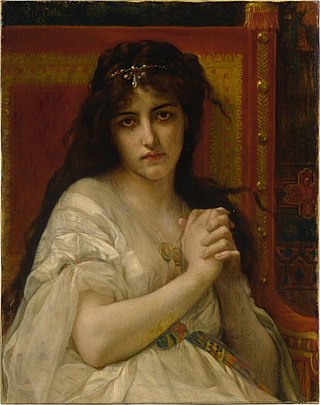
Desdemona is a character in William Shakespeare's play Othello. Shakespeare's Desdemona is a Venetian beauty who enrages and disappoints her father, a Venetian senator, when she elopes with Othello, a Moorish Venetian military prodigy. When her husband is deployed to Cyprus in the service of the Republic of Venice, Desdemona accompanies him. There, her husband is manipulated by his ensign Iago into believing she is an adulteress, and, in the last act, she is murdered by her estranged spouse.

Francis Finlay, was an English actor. He earned an Academy Award nomination for his performance as Iago in Othello (1965). In 1983, he was directed by Italian filmmaker Tinto Brass in the erotic classic The Key, with Stefania Sandrelli. His first leading television role came in 1971 in Casanova. This led to appearances on The Morecambe and Wise Show. He also appeared in the drama Bouquet of Barbed Wire.
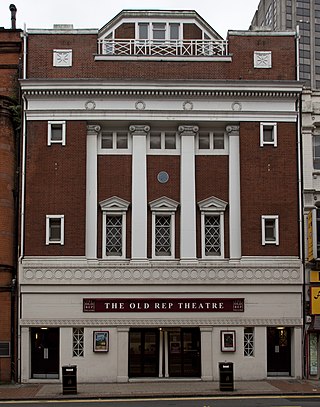
The Old Rep is the United Kingdom's first ever purpose-built repertory theatre, constructed in 1913, located on Station Street in Birmingham, England. The theatre was a permanent home for Barry Jackson's Birmingham Repertory Company, formed in 1911 from his amateur theatre group, The Pilgrim Players, founded in 1907. Jackson funded the construction of the theatre and established his professional company there.
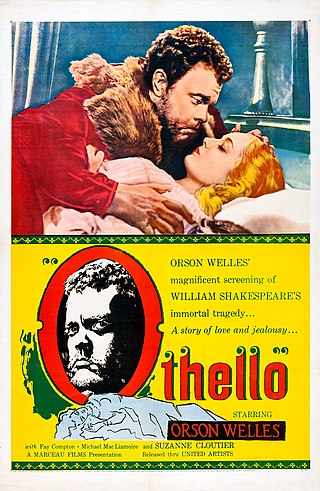
Othello is a 1951 tragedy directed and produced by Orson Welles, who also adapted the Shakespearean play and played the title role. Recipient of the Grand Prix du Festival International du Film at the 1952 Cannes Film Festival, the film was distributed by United Artists when it was released in the United States in 1955. Othello was filmed on location over a three-year period in Morocco, Venice, Tuscany and Rome as well as at the Scalera Studios in Rome.

Othello is a 1995 drama film based on William Shakespeare's tragedy of the same name. It was directed by Oliver Parker and stars Laurence Fishburne as Othello, Irène Jacob as Desdemona, and Kenneth Branagh as Iago. This is the first cinematic reproduction of the play released by a major studio that casts an African American actor to play the role of Othello, although low-budget independent films of the play starring Ted Lange and Yaphet Kotto predated it.

Emilia is a character in the tragedy Othello by William Shakespeare. She is married to Othello's ensign Iago, and is a maidservant to Othello's wife, Desdemona.

Michael Cassio, or simply Cassio, is a fictional character in William Shakespeare's Othello. The source of the character is the 1565 tale "Un Capitano Moro" by Cinthio; Cassio is unnamed in Cinthio but referred to as "the squadron leader". In the play, Cassio is a young and handsome lieutenant under Othello's command who becomes one of Iago's several victims in a plot to ruin Othello.
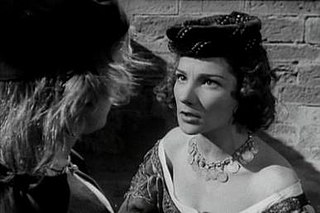
Bianca is a fictional character in William Shakespeare's Othello (c. 1601–1604). She is Cassio's jealous lover. Despite her brief appearance on stage, Bianca plays a significant role in the progress of Iago's scheme to make Othello believe that his wife Desdemona is cheating on him with Cassio.

Othello is a character in Shakespeare's Othello. The character's origin is traced to the tale "Un Capitano Moro" in Gli Hecatommithi by Giovanni Battista Giraldi Cinthio. There, he is simply referred to as the Moor.

Roderigo is a fictional character in Shakespeare's 1604 play Othello. Roderigo, a wealthy Venetian, is manipulated into funding the antagonist Iago's machinations in the belief that Iago will aid him in courting Othello's wife Desdemona. In the later stages of the play, Iago recruits Roderigo in hopes of assassinating Othello's former lieutenant Michael Cassio, though when he fails and is injured in this attempt, he is murdered by Iago in retaliation.
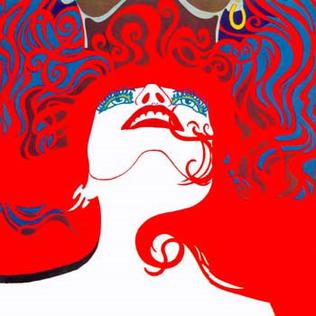
Catch My Soul is a rock musical produced by Jack Good, loosely adapted from Shakespeare's Othello. The character of Iago had originally been played by Jerry Lee Lewis in the US production which had closed in 1968. The UK production of the show was a showcase for the talents of Lance LeGault, P. P. Arnold, P.J. Proby and an introduction to the rock musician Robert Tench and the band Gass.
Othello is a 1990 film produced by the Royal Shakespeare Company, starring Ian McKellen, Willard White, Imogen Stubbs, and Zoë Wanamaker. It is based on a stage production of William Shakespeare's play Othello, directed by Trevor Nunn, and later rethought for TV and filmed in a studio. It was shot in a black box theater, so minimal props or scenery were needed, and aired 23 June 1990 on Theatre Night.

In addition to its appearance in the theatre, the character of Othello from the tragic play by William Shakespeare has appeared in many examples in art and culture since being authored by Shakespeare in the early 16th century.
Othello is Liz White's 1980 dramatic adaptation of William Shakespeare's Othello. An all black cast and crew, including actor Yaphet Kotto, created the film.
"Othello" is a 1964 Australian television play based on the play by William Shakespeare. It was broadcast on the ABC as part of Wednesday Theatre and filmed in ABC's Melbourne studios. It aired on 18 November 1964 in Melbourne, on 3 February 1965 in Sydney, and on 7 July 1965 in Brisbane.
















